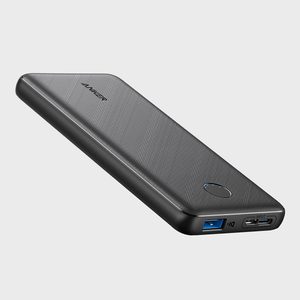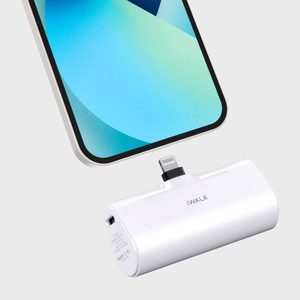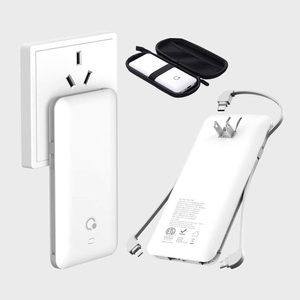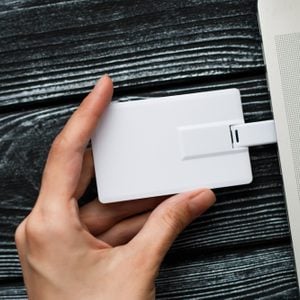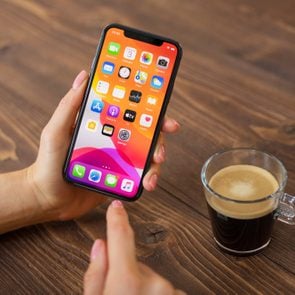Why You Should Never Charge Your Phone in Rental Cars
Updated: Jan. 25, 2024
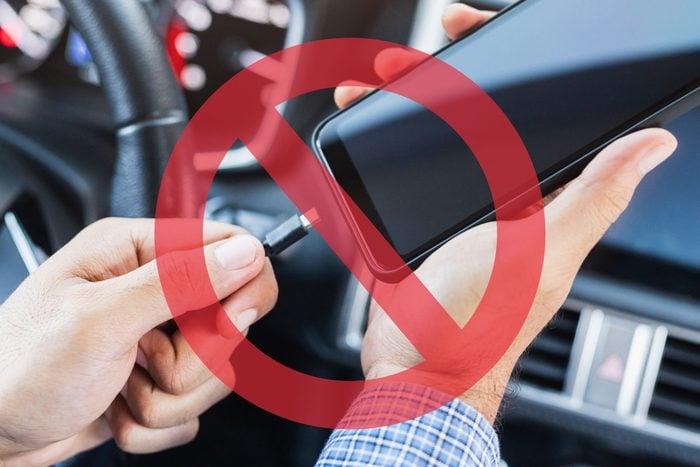
Protect yourself—and your personal information. Think twice before plugging your phone into a rental car.
Whether you’re renting a car for a road trip or hailing a Lyft home after a night out with friends, it’s tempting to plug your dying phone into a car’s USB port to charge. When you’re on the go, it’s important to have some phone battery left, and car gadgets let you charge up directly during your ride. Convenient, right?
However, charging your smartphone in a car that you don’t own can be disastrous. Rental cars and rideshares, much like airports and train stations, are just some of the places you should never charge your phone—unless you want your private information shared with strangers.
Why shouldn’t you charge your phone in a rental car?
First of all, you should never plug your phone into a public USB port, and that includes rental cars and essentially any car that you don’t own. “The USB cable and outlet are designed not only to charge the connected device, but they are also designed for two-way data transfer,” John Burkhauser, an auto repair specialist and director of educational programs at Bolt On Technology, tells Reader’s Digest. “When the phone is plugged into the active outlet, usually located at the front of the vehicle, both the phone and the vehicle systems will talk to each other.” Translation? Using that USB port can transfer information from your phone to the car, and the car can store private information from your phone. (Here are some of the other ways hackers get you when you travel.)
“Most everything you do with the phone and the vehicle systems will be stored in the vehicle’s memory,” says Burkhauser. “Your music list, text numbers, the addresses you looked for using GPS and more. When you disconnect, you leave all this information behind. This can be accessed by anyone who uses the vehicle after you.” That’s why a portable charger might be the best charging option any time you’re on the go.
Thomas Piippo, mechanical division director for the Automotive Service Association and owner of Tri-County Motors in Rudyard, Michigan, agrees. “Often (almost always) the USB port is connected to the car’s infotainment system, and it may download your personal information into the car’s system,” says Piippo.
And, like Burkhauser stated, it’s not enough to just disconnect your phone at the end of your rental car experience, because of the data you might have left behind. “Unless you delete that data before you return the car, other people may view it, including future renters and rental car employees or even hackers,” Lisa Weintraub Schifferle, an attorney at the Federal Trade Commission in the Division of Consumer and Business Education, writes on the FTC’s blog. Even if you know how to make your phone impossible to track, it’s astonishing what hackers can do with your cell phone number, so you really don’t want your information to fall into the wrong hands.
What should you do if you need to charge your phone in a rental car?
If you absolutely have to plug into a USB port in a car, Schifferle recommends using the cigarette lighter to check your permissions, and to make sure that before you return the rental car you delete any data that could be stored in the infotainment systems. There’s also a device called a USB data blocker that you plug into the USB port first, which helps prevent syncing and the transfer of information between the two points.
If you’re tech-savvy and car-savvy, then you’ll probably know how to delete information yourself. “You can choose to connect to rental vehicles if you know how to erase your information from the system when done,” says Burkhauser. “Some vehicles will allow you to navigate through the menu and delete your phone from the system. Other systems can be erased by doing a system reset, but you’d have to know how to do this to make it work.”
Smartphones, like baby monitors, thermostats and even pacemakers, are some of the everyday objects that can be hacked. But it’s your job to be vigilant and know how to protect yourself. “A good alternative way to recharge your phone on the go is to use a portable battery, one about the size of a cell phone,” says Piippo. These offer the same on-the-go convenience as charging in a rental car or rideshare, but with none of the safety risks.
Next, read through these ways you’re shortening the life of your phone.
Sources:
- John Burkhauser, auto repair specialist and director of educational programs at Bolt On Technology
- Thomas Piippo, mechanical division director for the Automotive Service Association and owner of Tri-County Motors in Rudyard, Michigan
- Lisa Weintraub Schifferle, attorney at the Federal Trade Commission in the Division of Consumer and Business Education

